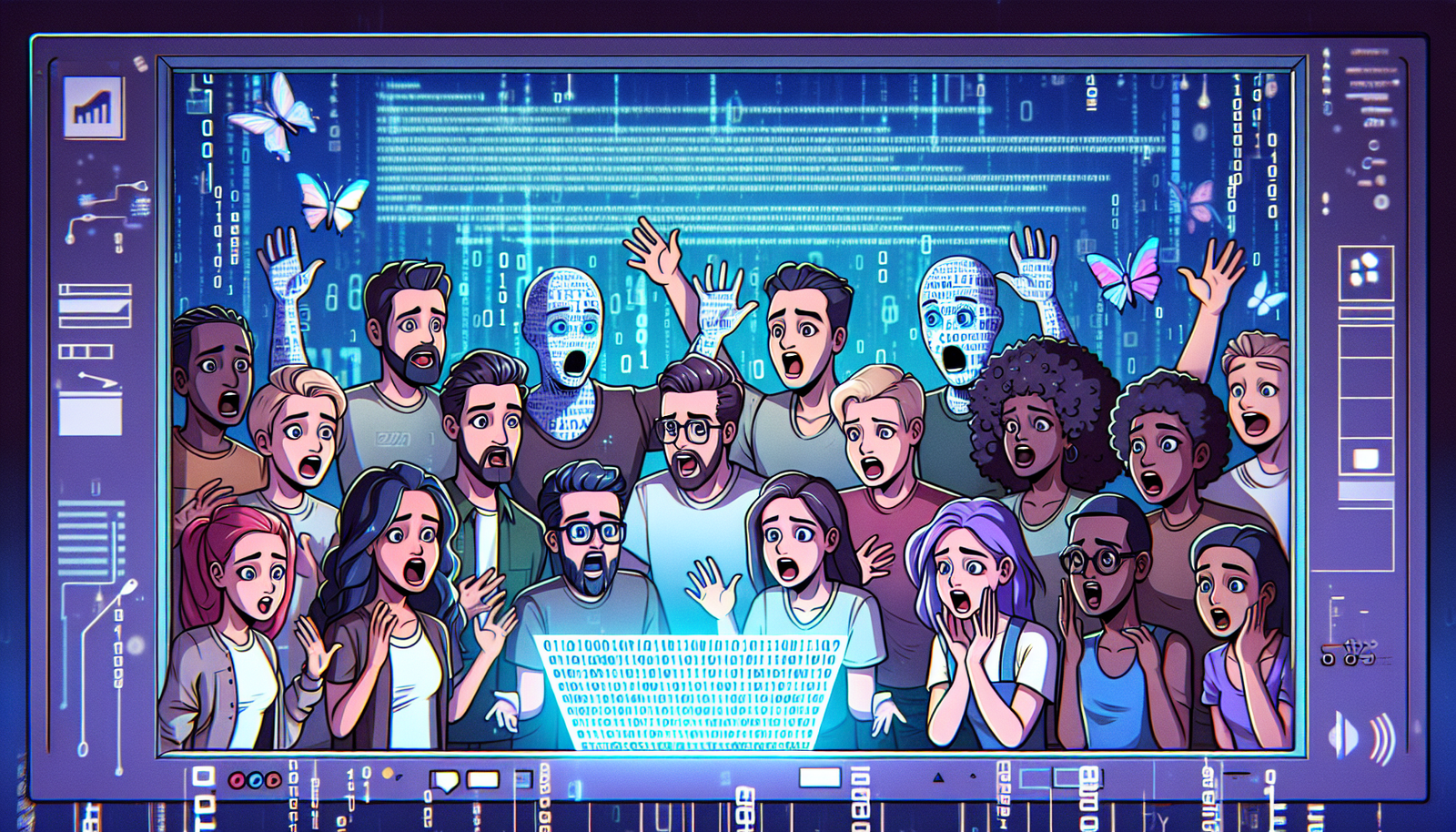Writers are facing a new era of uncertainty. An *artificial intelligence* has dared to produce a text that raises questions and queries. This phenomenon creates a wave of reluctance among authors, confronted with an unsuspected *digital reality*.
The impact is not limited to the quality of writing. The *very nature of literary creation* is highlighted, challenging the essence of human creativity. Debates are intensifying as writers question: is AI just a disturbing joke or a tangible threat to literature?
A reaction to AI
French writers express their frustration at the growing use of artificial intelligence (AI) in the field of writing. Several of them denounce what they consider to be a “computer joke” against them, emphasizing the fact that machines cannot replace the human essence of literary creation.
The fears of authors
Many writers fear that the rise of AI-assisted writing tools will harm the authenticity of a work. As one author states, “The creative process requires human emotions and experiences. A machine cannot understand that.” This perspective highlights the growing anxiety of an artistic sector facing invasive technology, which seems to threaten the fundamental values of their profession.
A threat to creativity
Some novelists approach AI with clear suspicion. They believe that these systems, powered by data and algorithms, risk trivializing literature. “The art of storytelling is unique and must remain human,” declares a renowned writer. Thus, the voices of writers resonate like a cry of alarm against the dilution of their creativity.
The struggle for authenticity
In this contestation, movements, such as the Authors Guild, emerge to defend the rights of writers. This organization, composed of thousands of members, creates initiatives aimed at promoting authenticity and the value of human writing. Each author must fight to preserve their creative identity in the face of technologically advanced but humanely lacking support.
The critical gaze of readers
Readers, for their part, share varied opinions. A recent study revealed that book lovers do not always perceive AI-assisted creation as a threat. They question the true added value of a text produced by a machine, while continuing to appreciate the richness of stories written by human beings.
An uncertain future for literature
With the increasing use of artificial intelligence for writing, the future prospects of literature appear tumultuous. Passionate debates ignite discussions among writers, as the divide between human creation and robotic assistance widens. How to find a balance between technological innovation and the preservation of artistic identity remains a crucial issue for the literary world.
Frequently asked questions
What has been the general reaction of writers to the news written by an AI?
The majority of writers express concern over the ability of AIs to produce texts, describing it as a threat to their art and originality.
Do writers see this news as a joke or something more serious?
While acknowledging the humor, many writers take this situation seriously, viewing it as a turning point in the literary and creative landscape.
How can writers defend themselves against AI content creation?
Writers can lean on their authenticity and unique experiences, while exploring niches of creativity where AI still has limitations.
Are there examples of public responses from writers to this situation?
Yes, several writers have shared statements on social media and in interviews, expressing their concerns and discussing the impact on their work.
Can AI really replace writers?
While AI can generate content, it cannot replace the emotion, depth, and authenticity that human writers bring to their works.
What actions are being taken by writers to protect their work?
Organizations such as the Authors Guild support writers in defending their copyright, highlighting the importance of human recognition in literature.
How might this situation affect the future of literature?
This situation could lead to a revaluation of human writing, where authenticity and originality become even more sought after in an increasingly AI-dominated world.
Do readers distinguish between works by writers and those generated by an AI?
Studies show that while some readers remain indifferent, others prefer human works, seeking elements that AI cannot offer.






